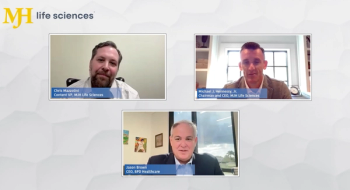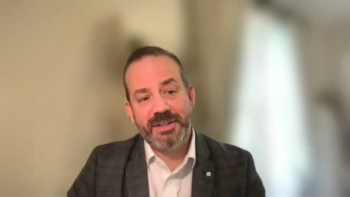
The Clinical Divide: Innovating Medical Devices for Patient Safety
What can physicians and healthcare executives do to ensure their patients are using the best and safest devices?
Everyone agrees that innovations in medical technology will lead to better, more effective treatments for our patients. Technology is evolving at lightning speed — often really more quickly than we can all keep up. So why has it taken so long for the FDA to push device manufacturers to strive for more innovative, more effective standards when developing new devices? And how can hospital executives and physicians continue to move the needle forward in this arena?
Welcome to the Clinical Divide. I’m Dr. Kevin Campbell. I’m a Duke-trained cardiologist and CEO of the health data startup PaceMate. Every week, this Healthcare Analytics News™ video series really strives to examine healthcare technology and medicine’s top news. My job is to bring you the views that help physicians and healthcare executives bridge the clinical divide.
This week, the FDA announced plans to modernize its 510(k) program to encourage innovations by medical device makers. The goal is really to promote the safety and effectiveness of these life-saving devices.
>>
So, how is this supposed to happen? The government is a big machine. The FDA is a big machine. It’s all about predicate devices — which are existing technology that’s already on the market. The FDA allows manufacturers to use these already established products as a guide for approvals for new low- to moderate-risk devices.
But are these devices that are coming out going to be safe? Is a predicate device process a good way to go? What about transparency? If we base “new” innovations solely on old tech are we really moving forward, or are we just putting lipstick on a pig, as we say in the south.
Under the he FDA’s new proposal, the public would have access to an online list of medical devices that did in fact gain approval based on predicates that are 10 years old or older. This way patients, doctors and executives all have the same idea of just how new the latest and greatest technology is developed and how good it really is.
With the way that technology has been advancing, these old predicates may shortchange patients who benefit from these devices by not using new innovations. As FDA Commissioner Dr. Scott Gottlieb said, “…Some devices may not be continually improving, which is the hallmark of health technologies.” These devices are not considered unsafe, but as clinicians, we owe our patients the opportunity to use the most up-to-date and safest devices out there. We owe them innovation. Predicates are cheaper to deal with.
Right now, this is just a proposal. The FDA is seeking public feedback, and we clinicians and health executives need to voice our opinion today to ensure that our patients are taken care of when it comes to technology. Maybe we should pressure the FDA to streamline rules for approvals in the first place and not necessarily use old predicate technology to dictate the easiest way to gain approval of new tech. But if this does become the rule, we physicians and C-suite executives need to take advantage of this list. When thinking about buying a new device, we need to make sure that it’s not based on some predicate from 20 years previous. We need the newest and best and safest technology. We need to constantly monitor and contribute to the database and we need to use it to guide our decisions. Because that’s the only way this program is going to work — and it’s the only way to get the best, most innovative medical devices to our patients, which is critical to our success.
Thank you for joining me for this episode of the Clinical Divide. Until next week, I’m Dr. Kevin Campbell, for Healthcare Analytics News™.
Navigate the digital transformation with confidence.
Binge Some Clinical Divide






































